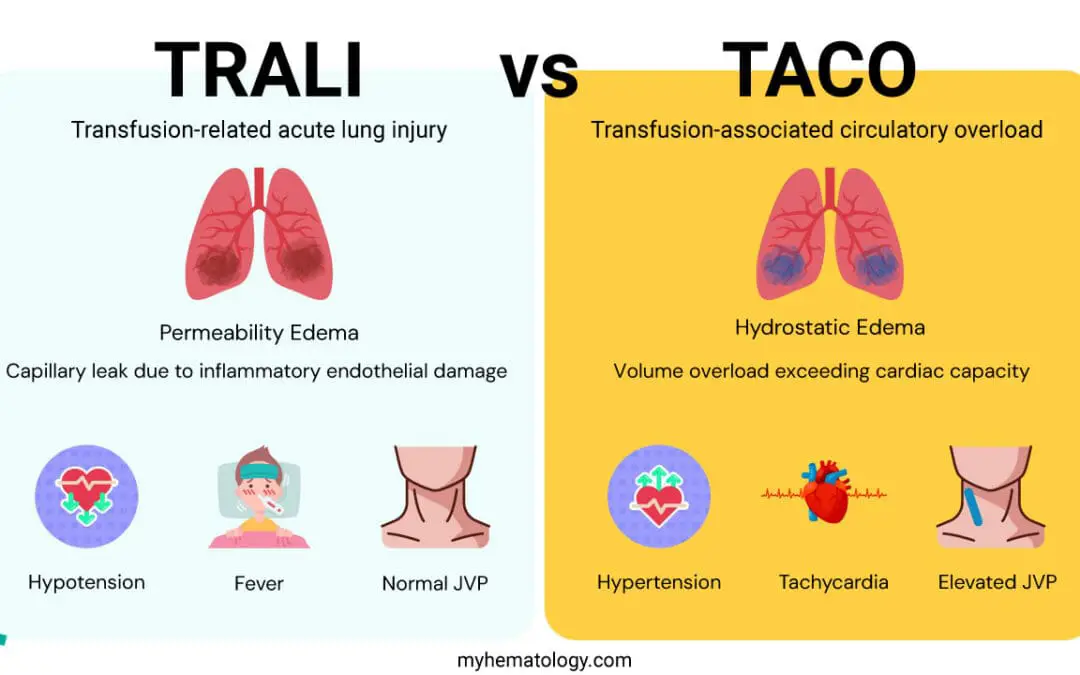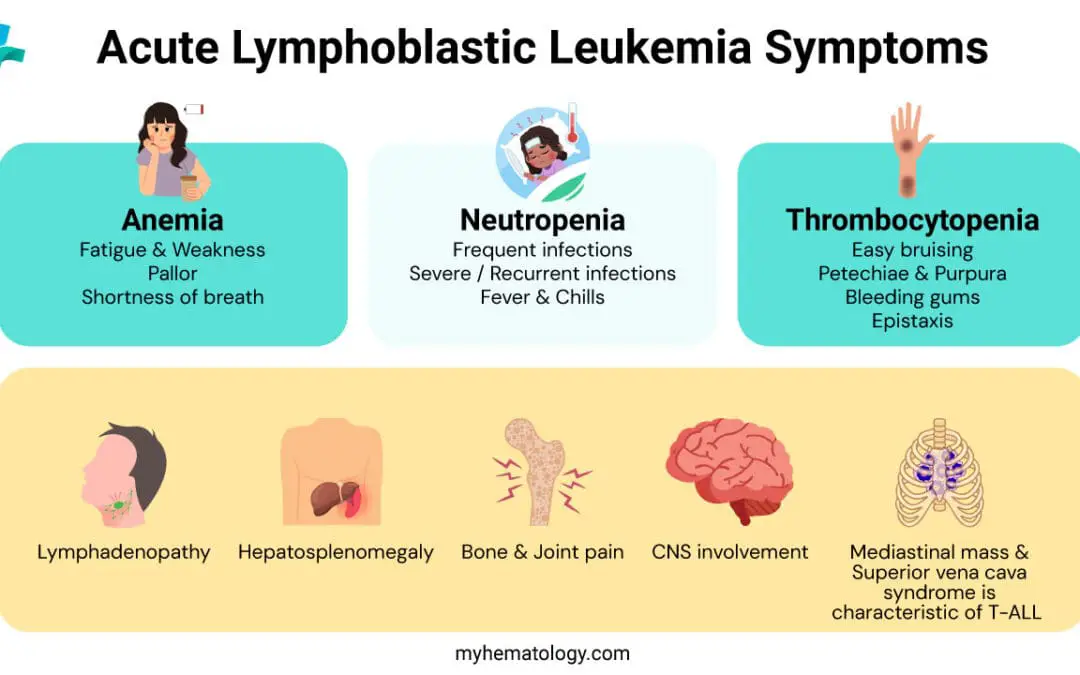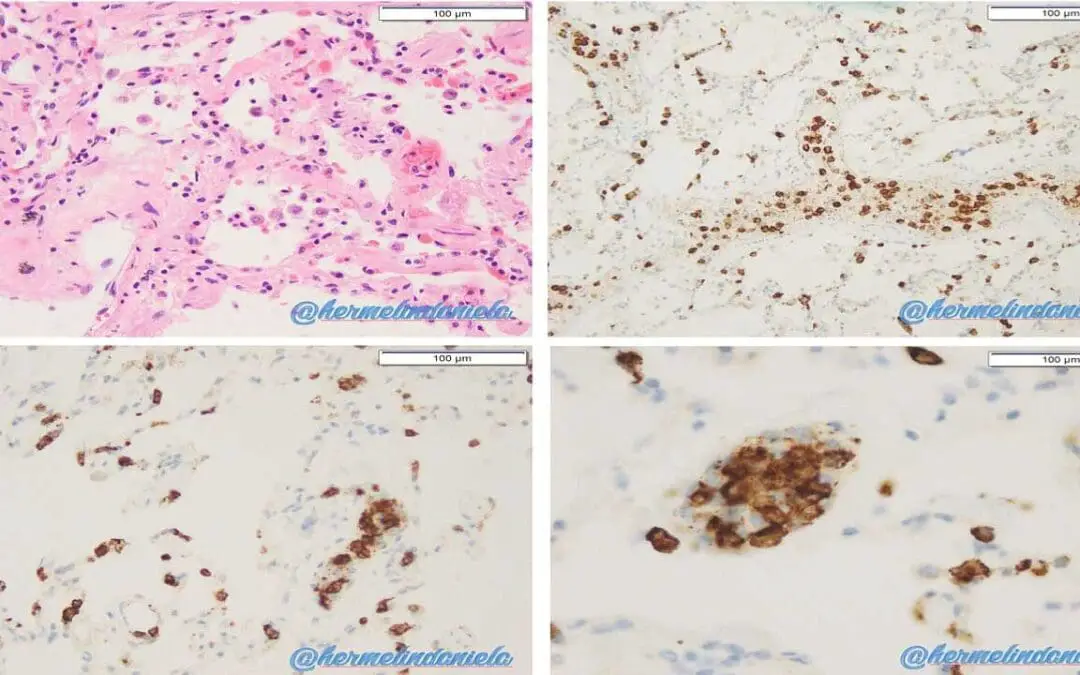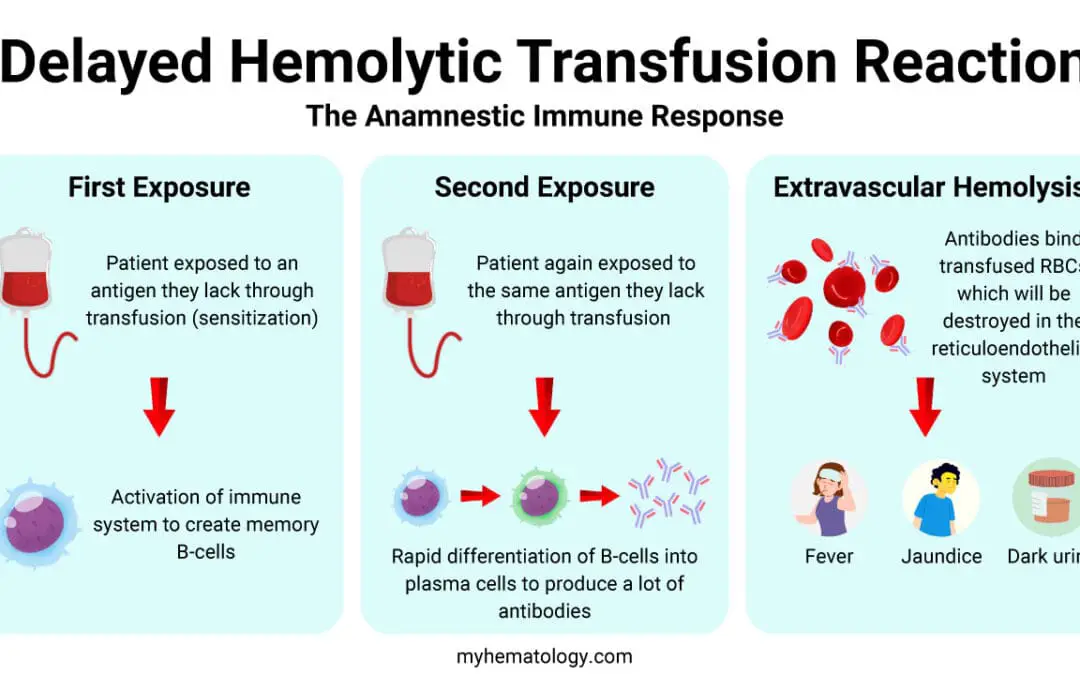
by MH Team | Oct 4, 2025 | Transfusion Medicine
TL;DR Transfusion-associated circulatory overload or TACO is a non-immunologic transfusion reaction occurring within 6 hours that results from acute hypervolemia overwhelming the heart’s capacity, which consequently raises pulmonary capillary hydrostatic...

by MH Team | Sep 30, 2025 | White Blood Cells
TL;DR Acute Lymphoblastic Leukemia (ALL) is a rapidly progressing malignancy of immature lymphoid cells (lymphoblasts) in the bone marrow. Acute lymphoblastic leukemia (ALL) is primarily classified by WHO as B-ALL (∼80% of cases) or T-ALL...

by MH Team | Sep 26, 2025 | Transfusion Medicine
TL;DR Transfusion-related acute lung injury or TRALI is an acute, life-threatening syndrome of non-cardiogenic pulmonary edema occurring during or shortly after blood transfusion. It must occur within 6 hours of completing the transfusion (typically within 1–2...

by MH Team | Sep 23, 2025 | Transfusion Medicine
TL;DR A Delayed Hemolytic Transfusion Reaction (DHTR) is an immune-mediated adverse event that occurs as a consequence of a blood transfusion. Its defining characteristic is the delayed onset, with signs and symptoms typically appearing 3 to 30 days post-transfusion....

by MH Team | Sep 18, 2025 | Red Blood Cells
TL;DR Microangiopathic hemolytic anemia or MAHA is a syndrome defined by a triad of microangiopathic damage, hemolytic anemia, and thrombocytopenia, all resulting from the physical fragmentation of red blood cells in small blood vessels. Pathophysiology ▾: The...







Recent Comments